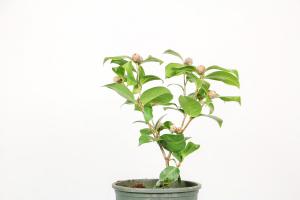Introduction
Planting native trees is an important aspect of conservation efforts worldwide. It is a critical activity for maintaining healthy ecosystems, promoting biodiversity, and combating climate change. In this article, we will explore why planting native trees is vital and its numerous benefits.
Biodiversity Preservation
Native trees are indigenously adapted to local conditions and support a vast range of species, including birds, insects, and mammals. They also provide habitat and nesting sites for various animal species, including those that are endangered. The unique ecosystems created by native trees ensure that the overall ecology remains balanced and full of life.
Purifying the Air
Another critical benefit of planting native trees is that they act as natural air purifiers. They absorb pollutants, such as carbon dioxide and other greenhouse gases, and release oxygen into the atmosphere. Trees can also act as a filter against air pollution from factories, vehicles, and other sources, making our air cleaner and more breathable. By planting more native trees, we can significantly reduce our carbon footprint and contribute to a healthier planet.
Soil Conservation
Native trees help conserve soil by preventing runoff and erosion. Their extensive root system binds soil and prevents it from washing away, while their canopy protects the soil from harsh environmental conditions like excessive rain, wind, and sunlight. Trees help maintain soil fertility by adding vital nutrients as organic matter through leaf litter and decomposing roots.
Combatting Climate Change
The paramount importance of planting native trees lies in their ability to combat climate change. Trees are essential carbon sinks and absorb carbon dioxide emissions from the atmosphere, thereby slowing down the harmful effects of climate change. By planting native trees, we can help reduce the amount of carbon dioxide in the atmosphere, thus making our world a cleaner and more sustainable place.
Conclusion
In conclusion, planting native trees is not only critical for maintaining healthy ecosystems and biodiversity levels, but it is also essential for mitigating air pollution, soil erosion, and combating the effects of climate change. It is a simple action that anyone can take to positively impact the environment and preserve the earth for future generations. By supporting and investing in reforestation efforts worldwide, we can ensure a sustainable and healthy future for our planet.

 how many times do yo...
how many times do yo... how many planted tre...
how many planted tre... how many pine trees ...
how many pine trees ... how many pecan trees...
how many pecan trees... how many plants comp...
how many plants comp... how many plants can ...
how many plants can ... how many plants and ...
how many plants and ... how many pepper plan...
how many pepper plan...





























